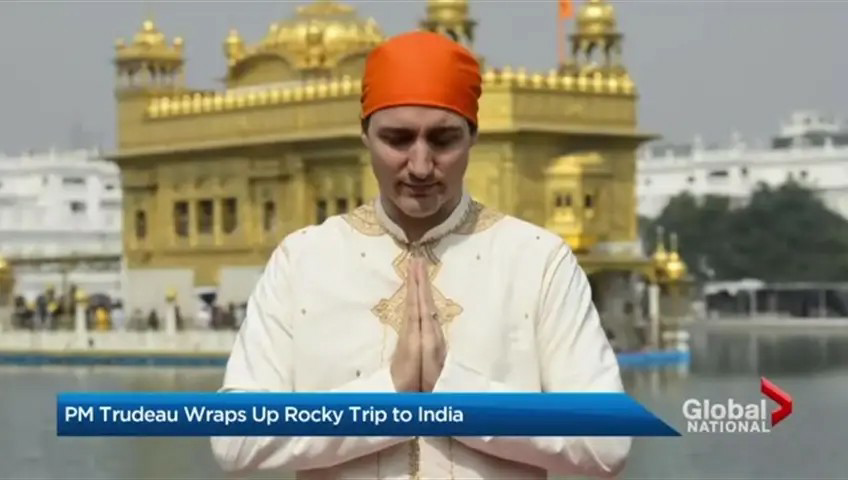Canada can only grow and prosper if politicians understand that diaspora are not an instrument for their own personal or political gains. Chan’s purported connections to the Chinese government have become a useful political football for the current government, a government that carefully selects those diaspora targets that fit nicely with its own foreign policy priorities. Why was Chan singled out? There are many MPs whose actions indicate they have loyalties to their homelands whether that be India, Israel or Ukraine, to name a few. It is no secret that the Harper government’s slanted position on Palestinian statehood, or the decision to close our embassy in Tehran or sending arms and half a billion in aid and loans to Ukraine are influenced by diaspora lobbying.To be sure, these policies are chosen because they generate the greatest support for the Conservatives through votes and funding for the party. But there are bound to be contradictions and problems. The government has for example drawn on office resources and staff to court diasporas during an election period; an ethical breach at best, an illegal contravention of the Election Act at worst. Differences within a diaspora can become acute when the government courts a particular faction for their Conservative values at the expense of neglecting the interests of others within the group.. . .But diaspora politics is a two-way street. While the manipulation of diaspora to meet Conservative ends has reached dizzying heights, unthinkable during the Trudeau or even the Chretien eras, so too are the efforts by diaspora groups to impose their particular interests on Canada’s foreign policy agenda. This “push” side of diaspora politics poses new challenges. That is because the rise of cheap and ubiquitous telecommunications, social media, instantaneous money transfer, and air travel coupled with financial liberalization have all helped ensure that Canada’s diaspora are instantaneously connected to their homelands.These new ways of connecting have created both opportunities for growth and investment and have as well, opened old wounds that prove hard to heal. As an example of the former, consider India’s Prime Minister Modi’s visit to Canada in 2015 in which he staked out a strategy of diaspora investment in India’s infrastructure by engaging these groups directly in a cross Canada tour. Harper was consistently at his side. In the latter instance, consider the decision by the Toronto Symphony Orchestra under pressure from anonymous donors, to cancel performances by Ukrainian pianist Valentina Lisitsa who openly criticized the Ukrainian government on social media.
Obviously not all of Canada’s foreign policy decisions are the result of diaspora politics but many of the important ones, including the likely boycott of the next Commonwealth meeting in Sri Lanka, are. As we have argued before, this “dangerous game of diaspora politics” is mostly about short-sighted, self-interested politicians. We believe Canadians need to wrestle the diaspora political agenda away from our elected officials as it is far too important to be left in their self-serving hands.
Mélanie Joly, Canada’s Foreign Affairs Minister, recently stated that Canada seeks regime change in Russia. “The goal is definitely to do that… We want also to make sure that Putin and his enablers are held to account,” she said.This is not the first time the Trudeau government has tried to overthrow a foreign government. As Foreign Affairs Minister, Chrystia Freeland worked with the Lima Group, an ad hoc coalition of like-minded states in their failed effort to bring Juan Guiado to power in Venezuela.However, Joly’s comments count as the first time Canada has openly called for deposing the leader of a nuclear power. The decision to openly support regime change constitutes a break from past practices, where the West, particularly the U.S., desired a degree of plausible deniability.Joly’s open call is the result of several factors. First, there are political considerations. Accountability and transparency, the hallmarks of democratic societies, are core features of the West’s long-standing rhetorical support for Ukraine. A confrontational policy plays well domestically where a majority of Canadians believe Ukraine should keep fighting. A majority of those who support more war are Liberal voters.
In an astonishing statement to the New York Times in 2015, Justin Trudeau declared, "There is no core identity, no mainstream in Canada,'' and consequently that "makes us the first post-national state."
This kind of talk would have been horrifying to Peter Lougheed, Alberta's premier from 1971 to 1985. He believed in Canada. He had faith in our national institutions. But the intransigence of the federal government led by Pierre Elliot Trudeau tested that faith.
And now we have Justin Trudeau, a prime minister who, like his father, has odd ideas about the country, the world, and Alberta's place in it.
Video Title: Khalistan Row Escalates as Canada Accuses India of Terrorist's Death | Vantage with Palki Sharma. Source: Firstpost. Date Published: September 19, 2023.
